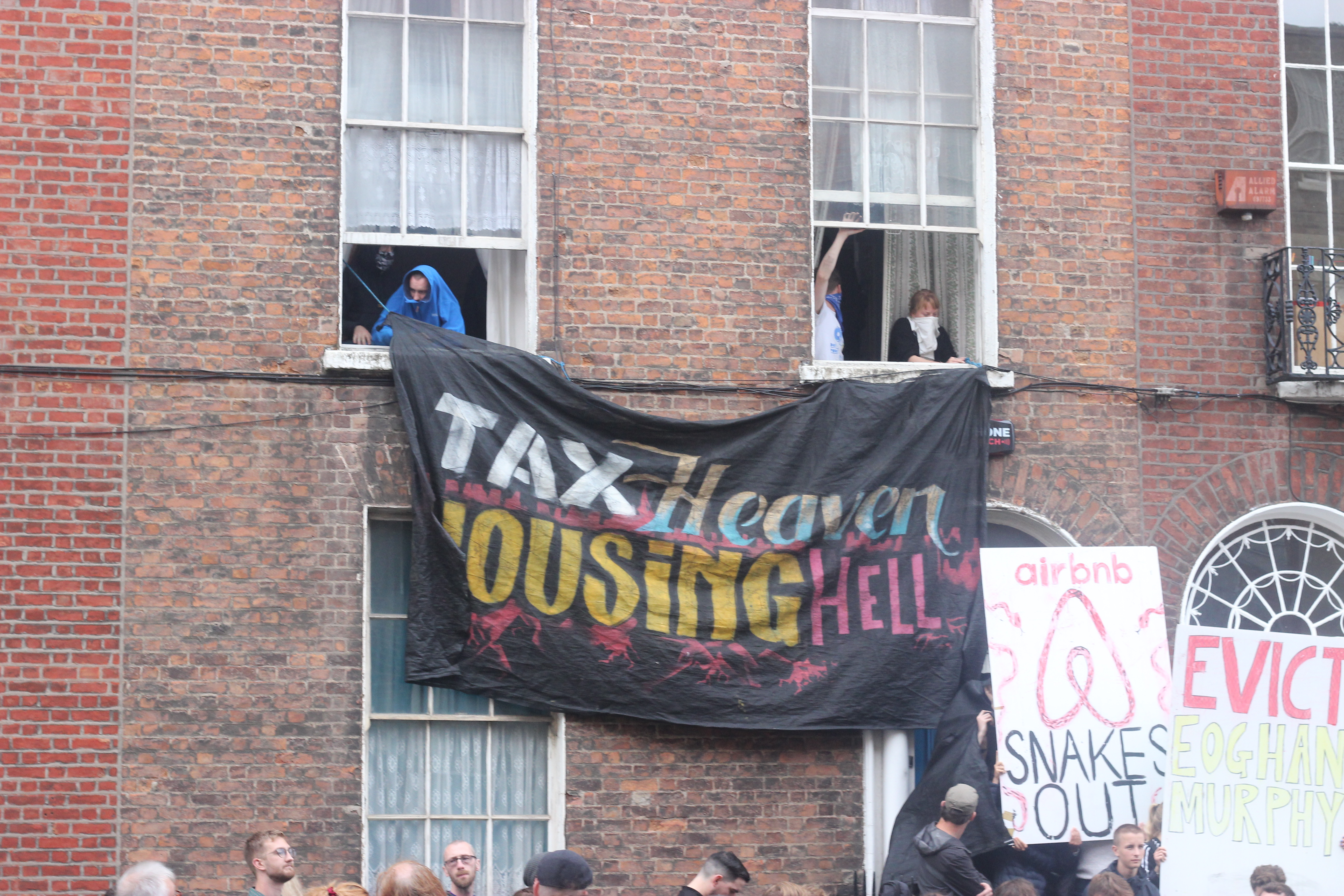The violent dispersal of the 34 North Frederick Street occupation represents the beginning of a crackdown on the housing movement across Dublin and Ireland. The end of the 25-day occupation was so unnecessarily draconian, marked by the arrest of multiple protesters, that it can only be understood as a show of force by the Gardaí against the growing number of occupations across Dublin. However, any violent strategy also stands as a vile miscalculation on behalf of the Gardaí and Dublin City Council (DCC). The ever-worsening state of housing in Dublin and Ireland render the rise of a protest movement as unassailable. While the violent expulsion and arrest of protesters is immediately appalling, it is also naive from public authorities to expect any successful shock-and-awe suppression of the housing movement.
The Garda reclamation of the property must be condemned as inappropriately violent. From their arrival, Public Order Unit officers anticipated a violent conflict without any reason. Their armoury of bulletproof vests, balaclavas and batons is a huge overreaction to a student-led protest movement. Moreover, reports from the eviction suggest the indiscriminate use of violence against students by officers. As Take Back Trinity member Sean Egan alleged, the Garda “beat people with night sticks [and] sprayed people who weren’t doing anything with pepper spray”. Such a no-holds-barred approach is unneccessary to dislodge a group of students in occupation of an uninhabited terraced house. Consequently, the Gardaí raid must be understood by its intended effect: intimidation and suppression.
The encroachment of the housing movement throughout Dublin and Ireland is one of the first serious challenges to the indignities and impoverishment forced on thousands of Irish people by the housing crisis. The new occupation of a house in Belvedere Place, coupled with door-to-door surveys around Mountjoy Square, show its particular conflagration in the epicentre of the crisis, Dublin. As an organic protest movement formed on social media that also takes a real-world effect through occupations, Take Back the City poses the first serious opposition to the profiteering reorganisation of housing in Ireland. The violent overreaction of public authorities to the North Frederick Street occupation serves as their fearful backlash to the movement.
However, any expectation that a strong hand and violent evictions will quell protests are misplaced. The housing crisis is, after all, a crisis. Social and traditional media have repeatedly exposed the slum-like conditions suffered by tenants across Dublin. The first property occupied at Summerhill exemplifies this deterioration in housing. With multiple people crowded into shared rooms for up to €500 a month each at the property, Summerhill recalls the housing conditions of the 1940s more than a modern-day, progressive Ireland. Moreover, it is an universal experience. Any student in Dublin will be able to attest to similar experiences and stories, whether endured by themselves or friends. High Court injunctions and violent evictions will not quash protest because there is no real alternative to occupation for any low-income resident of Dublin.
The eviction and arrest of multiple protesters also stands as a nadir in publicity for the government and its housing policy. While it is difficult to define what Varadkar’s “Middle Ireland” think about something as new and unprecedented as Take Back the City, the imagery of armed guards beating students from an unoccupied house does not reflect kindly on Dublin City Council.
Most importantly, this kind of state violence is abhorrently unacceptable in Ireland. This country has accommodated violence and abuse largely through suppression and privacy, whether in the Magdalene laundries or Direct Provision. Its spillover into the streets, the most public realm possible, is an unsettling and unusual point of escalation in the housing crisis. Punishing rent prices and violent retaliation will serve to encourage and radicalise the housing movement in achieving their moderate aims.






